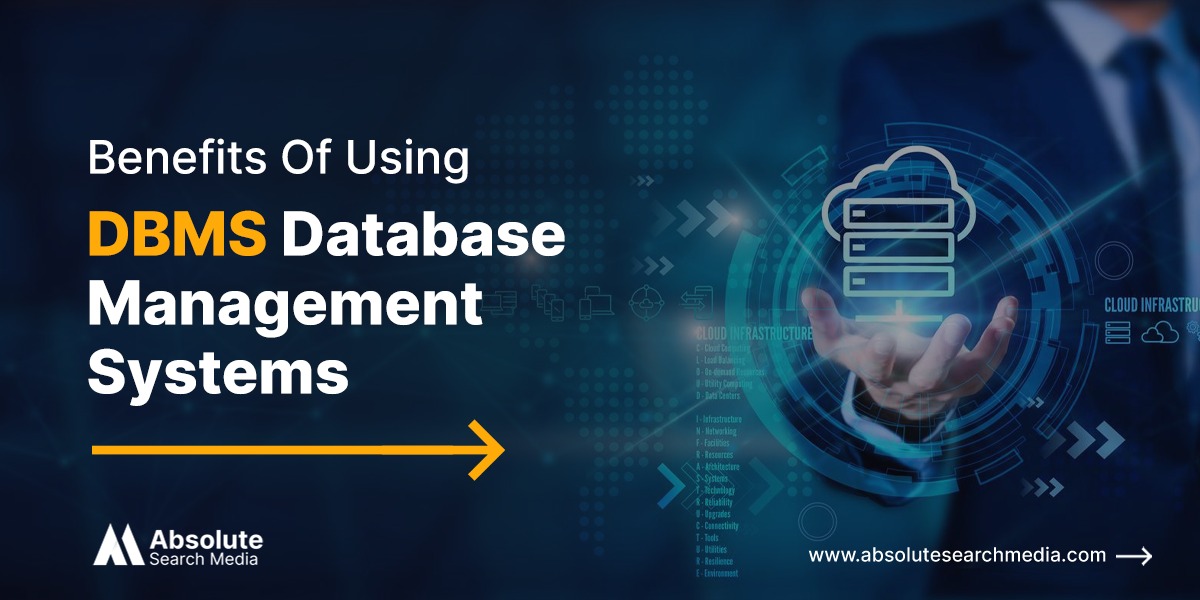Benefits of Using DBMS Database Management Systems
Published On
August 27, 2023
In today’s data-driven world, a DBMS serves as a crucial tool for businesses and organizations aiming to manage their data assets effectively. Its advantages extend beyond efficient data storage and access; they encompass security, collaboration, integrity, scalability, and the ability to drive better decision-making. As businesses continue to rely on data for strategic planning and operational excellence, the importance of a reliable DBMS becomes increasingly evident.
A Database Management System (DBMS) offers many advantages that significantly impact various data management and decision-making aspects in today’s data-driven landscape.
A Database Management System (DBMS) is a compilation of interconnected data and a suite of software tools and programs that enable the retrieval, processing, and manipulation of this data. Implementing suitable security protocols, it grants the capability to access, fetch, and utilize the data, proving highly valuable for enhanced data cohesion and safeguarding.
A Database Management System (DBMS) is a software application that enables users to manage data efficiently. It supports various functions such as data creation, storage, retrieval, update, and administration. There are several types of DBMS based on different data models:
It’s important to note that while these types of DBMS are categorized based on data models, many modern databases incorporate elements from multiple models and might only adhere to one classification.
1. Centralized Data Storage: A DBMS provides a centralized repository for storing and organizing data. This eliminates data redundancy and promotes consistency, as data is stored in a single location rather than being scattered across different files or systems.
2. Enhanced Data Security and Privacy: DBMSs incorporate robust security features to control access to data. Users can be assigned specific roles and permissions, ensuring that sensitive data is only accessible to authorized individuals. This helps safeguard data against unauthorized access and potential breaches.
3. Enforced Data Integrity: DBMSs implement mechanisms to maintain data integrity, such as data validation rules and constraints. This ensures that data entered into the database meets specified criteria and remains accurate over time.
4. Efficient Data Access and Retrieval: A DBMS optimizes data retrieval using structured querying languages (e.g., SQL). This allows users to quickly and precisely retrieve the desired information without the need to navigate through complex data structures.
5. Concurrent User Access: DBMSs support concurrent access by multiple users, enabling them to work on the same data simultaneously. This enhances organization collaboration and productivity, as users can access and update the database concurrently without conflicts.
6. Scalability and Flexibility: DBMSs are designed to accommodate growing amounts of data. They offer scalability options, allowing businesses to expand their databases as their data needs increase. Additionally, DBMSs can be adapted to evolving business requirements without a complete overhaul.
7. Streamlined Data Management: DBMSs offer tools for data administration, backup, and recovery. This simplifies tasks like data backup, restoration, and maintenance, reducing the risk of data loss and downtime.
8. Improved Decision-Making: The structured nature of data within a DBMS enables efficient querying and reporting. This empowers users to generate insights and make informed decisions based on accurate, up-to-date information.
Conclusively, this article reinforced the significance of DBMS as an influential tool for organizations. DBMS serves as an indispensable asset by allowing users to manage and organize data efficiently. Its myriad features, including data abstraction, integrity and security measures, concurrent access support, and comprehensive backup and recovery capabilities, collectively underline its pivotal role in modern data management.

Get In Touch With Our Team And Experience A Smarter Approach To Digital Marketing.